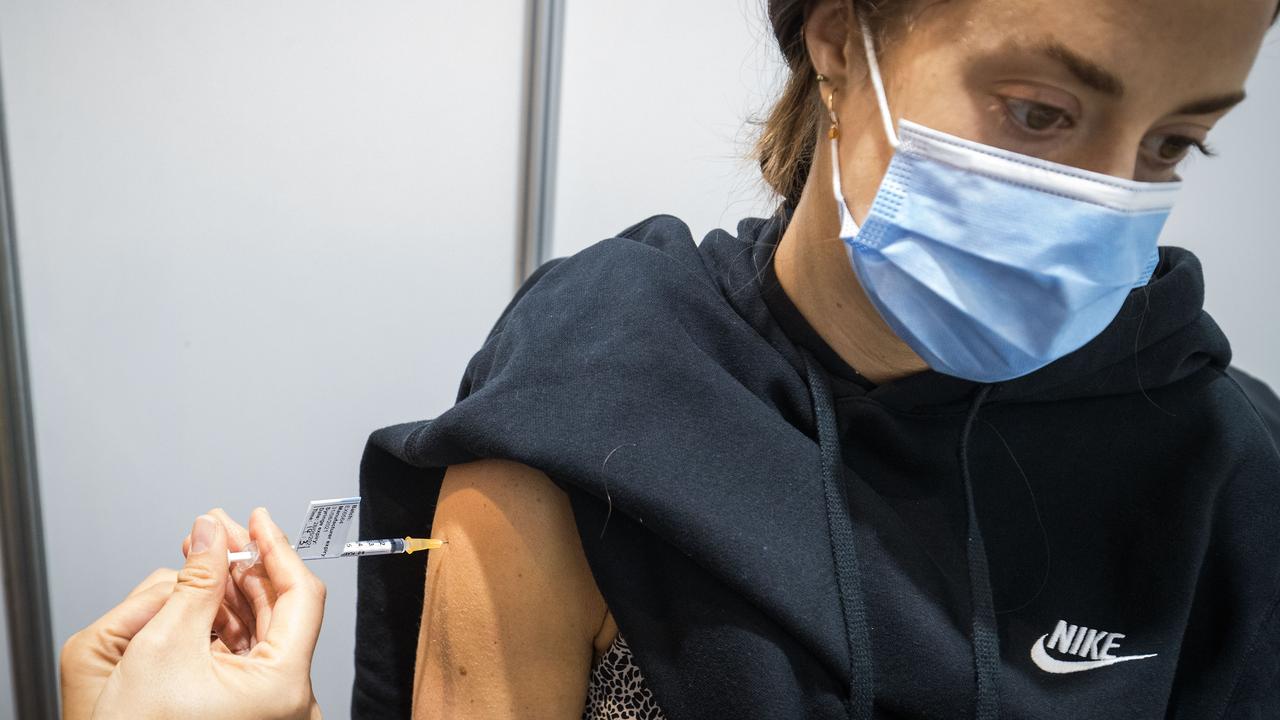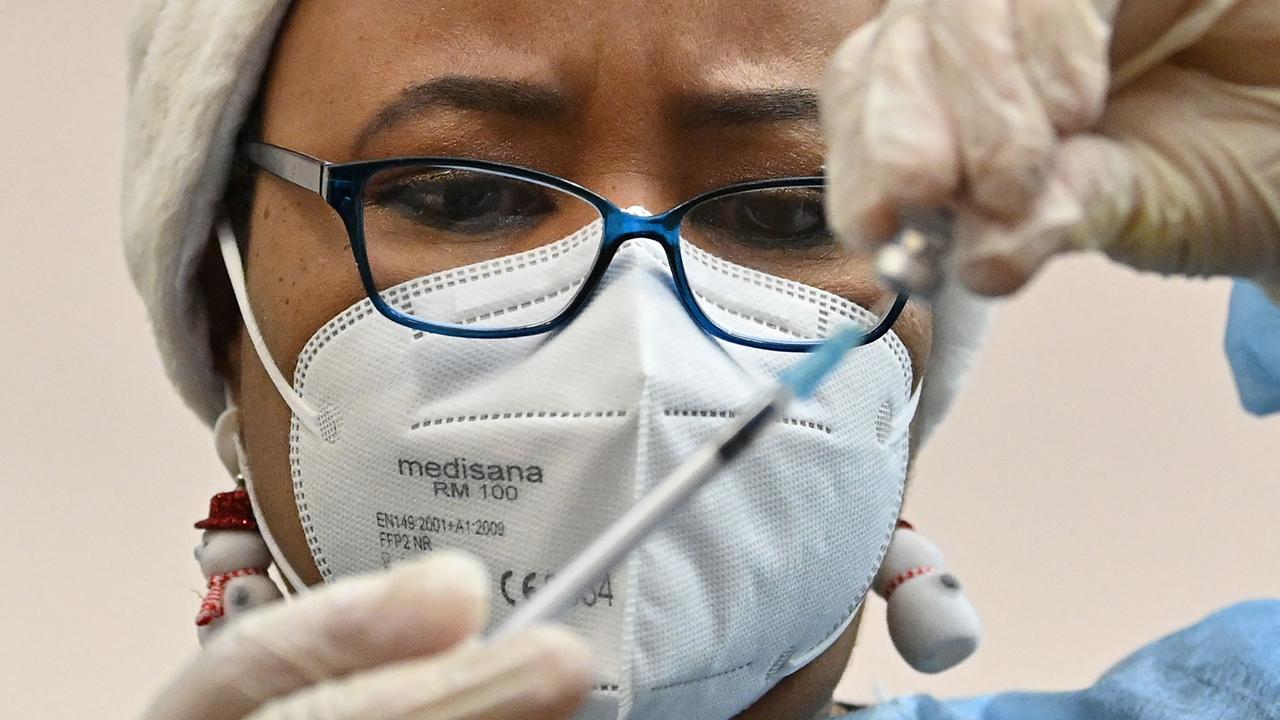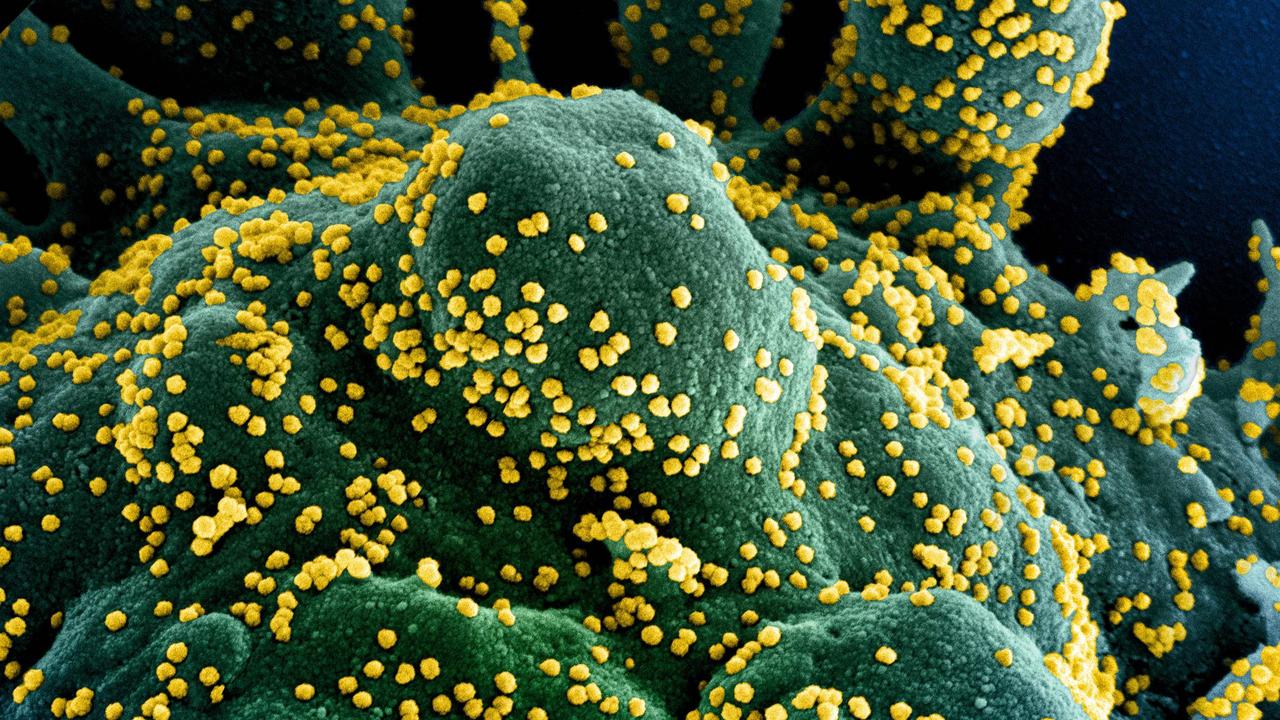AstraZeneca vaccine should now only be given to those aged 60 and above, ATAGI recommends
The government has now changed its advice for the AstraZeneca vaccine, after a 52-year-old woman died from a brain clot last week.
The AstraZeneca vaccine should now only be given to those aged 60 and above, the chief immunisation body has told the government.
Health Minister Greg Hunt said the Australian Technical Advisory Group on Immunisation (ATAGI) made the recommendation after a 52-year-old woman died from a brain clot last week. Mr Hunt said the government accepts the advice.
Chief Medical Officer Paul Kelly said the advice states that anybody who has had a first AstraZeneca dose should not hesitate to get their second.
He said that the UK has reported 23 clot cases in 15.7 million people after receiving a second dose.
Under previous advice here in Australia, Pfizer was only the preferred vaccine for people under 50.
Now, Pfizer doses will immediately be made available to anyone aged between 40 and 59.
Mr Hunt says the country remains on track to provide a vaccine dose to every Australian who wants one by the end of 2021.
Professor Brendan Murphy urged anyone over 60 to get vaccinated.
“For those over 60 and particularly those over 70, you have a more than one in 10 chance of dying if you get COVID.”
“You need to be protected as soon as possible.”
“Go and get vaccinated with your first and second doses at your GP, with AstraZeneca.”

He admitted that today’s announcement may add to Australia’s vaccine hesitancy, but that 70 per cent of Australians intend on getting vaccinated.
“Hesitancy is still quite low in Australia.” he said. “We know that over 70 per cent of people are intending on getting vaccinated.”
“Of course there are impacts on hesitancy, this may have some impact, but the publication by the TGA and the transparent way of the new data could have an impact on hesitancy as well.”
“We believe that the community is more likely to do what we recommend if we are absolutely transparent and follow the medical advice at all times.”
Some researchers and medical specialists were calling for a review of the age groups who receive the AstraZeneca jab after last week’s death.
The woman’s death, the second believed to be linked to the vaccine in Australia, occurred after 3.6 million doses of AstraZeneca had been administered.
The TGA says it reviews all deaths reported after a vaccination is administered and compares them with expected natural death rates.
“To date, the observed number of deaths reported after vaccination is actually less than the expected number of deaths,” the TGA said in a statement.
“Each year in Australia, there are about 160,000 deaths, equating to 13,300 a month or 3050 each week. In the most recent reporting year, two-thirds of these deaths were in people aged 75 years and over.”
Last week, chief medical officer Paul Kelly said the new blood clotting case was “extremely unfortunate” but stressed it was “extremely rare”.
“I will point out that it is only the second death with now over 3.6 million doses of this vaccine being given across Australia, I will point out that this remains an extremely rare event to get these serious clots, but when they happen, as we have seen in this case, it can have tragic circumstances. My heart goes out to the family, and all the friends and colleagues of this particular person,” he said during Thursday afternoon’s press conference.

But he said AstraZeneca was still the recommended vaccine for those aged over 50, and Pfizer for under 50s.
“There is definitely a much lower risk of this event, this clotting events, the older one gets. There is a definite cut point there at about the age of 50,” he said.
“(The woman’s death) is clearly concerning … but I would say this – we have made those decisions based on the risk and benefit equation. At the moment, the AstraZeneca is a really important element of the vaccine rollout. But nothing is compulsory. Individuals who have concerns about any medical procedure but including and in particular the private vaccine at this time should talk to their GP about those concerns.”
In its report last week, the TGA cited another “four new cases classified as probable in the past week” that included three cases in NSW and one in Victoria.
A 50-year-old woman and two men aged 83 and 91 years presented with issues in NSW and a 74-year-old woman presented with issues in Victoria.
“This takes the total Australian reports of cases assessed as TTS following the AstraZeneca vaccine to 48, with 35 confirmed cases and 13 probable cases,” the TGA reports reads.
Of those, 31 have been discharged from hospital and are recovering, with some receiving ongoing outpatient medical care, and 15 remain in hospital, including one who remains critically ill in intensive care. Two people have died in hospital.
A NSW woman, 48, died after receiving the AstraZeneca vaccine in April. The medicines regulator said her death from rare blood clots was “likely” linked to the vaccine.
The Health Minister Greg Hunt is expected to hold a press conference early this afternoon.
– more to come




